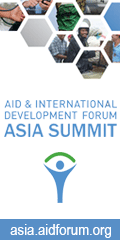 NGO News Report :: Around 200 global leaders including head of states, ministers of UN member countries, 900 civil society leaders today gathered in Addis Ababa to give the final shape to the declaration titled “Addis Action Agenda” on Financing for Development have been negotiated for the last six months in New York.
NGO News Report :: Around 200 global leaders including head of states, ministers of UN member countries, 900 civil society leaders today gathered in Addis Ababa to give the final shape to the declaration titled “Addis Action Agenda” on Financing for Development have been negotiated for the last six months in New York.
The conference is being held for 13 to 16 the July in UN Africa Economic Centre in the city. A Bangladesh delegation headed by the State Minister Mr. MA Manan is in Addis Ababa for participation in the conference.
Still there are major differences between developed and developing countries especially in aid, debt and intergovernmental tax committee to stop illicit financial flow, but there are options to be agreed by the delegations. Yesterday in the concluding session of the Civil Society Organization (CSO) Forum on UNFfD, UNSG Ban ki Moon mentioned that the conference is a fundamental base i.e. the means of implementation in respect of financing of Post 2015 Sustainable Development Goals (SDG) which to be announced in September UN General Assembly and global climate deal which hope to be signed in Paris in December this year.
The two-day CSO forums a preparatory meeting for UNFfD is held in Addis Ababa during 10 to 12 July at Hotel Deselegn and around 500 CSO delegates participated including EquityBD delegate Rezaul Karim Chowdhury. Civil society forum released a declaration with dismay on critical unresolved issue and expressed hope that global leaders will not produce an unattainable agenda, which only reflects business as usual. Ban Ki Moon, the UNSG expressed that a bold transformative agreement is necessary for “one planet and one future” i.e. to reduce global inequality and poverty.
The major unresolved issue is the most of the developing countries and civil society demand for an intergovernmental political tax body, which will work for a convention to stop illicit financial flow, setting tax and bank transparency and which will stop the present major drain of resources from developing countries to developed ones. The amount is around $600 billion per year while the aid flow towards the opposite is only $300 billion. The pressure from Developed countries to accept OECD process of BEPS (Base Erosion and Profit Shifting) lacks participation from developing countries.
The current Expert Tax Committee with 2.5 person staff by UN is not well resourced. The latest outcome document released on 7th July only accepted to increase annual meeting days and an appeal to fund more to these committees. But the demand from developing countries and CSOs is to establish a political body or a commission on this with regular budget of UN.
In respect of aid, developing countries demand tangible timeframe and periodical review on the aid commitment of developed countries of GNP 0.7% particularly 0.15% to 0.20% to LDC. They also demanded tangible timeframe and roadmap on the commitment of additional climate finance of $100 billion from 2020. Developed countries don’t want to give any measurable commitment and timeframe in this regard. Developing countries also argued to include the principles of CBDR (common but differentiate responsibilities) as agreed in RiO principles and in the AAA (Addis Ababa Action) agenda. But they already have shown their obstinate position of not mentioning this in the outcome document.
Another contentious demand from developing countries and civil societies is inclusion of debt cancellation of highly indebted countries, a charter on sovereign responsible borrowing and lending, and a fair orderly management of debt. This is also to avoid Greece kind of crisis in developing countries, as some of those cases especially in LDCs debt situation are deteriorating. Civil society also demands debt cancellation of Nepal. But developed countries are not agreeing on a global debt mechanism.
Developing countries and CSO also expressed worries on developed countries’ overwhelming pressure on private financing and so called approach of “blended financing” including PPP (private public partnership). The demand of developing countries is the state supremacy while civil society demand is not to promote private financing with public money, and no private financing in essential public services like water, health, education, telecommunication and electricity.
Developing countries and CSO are eagerly and anxiously waiting for the final outcome whether the developed countries come forward with their term.




